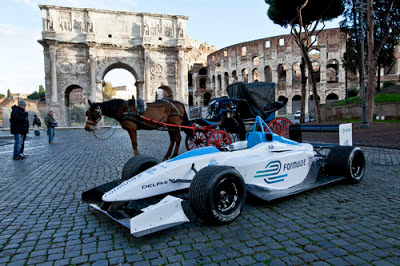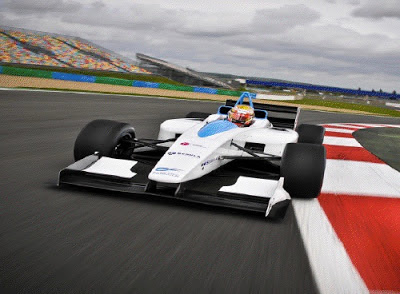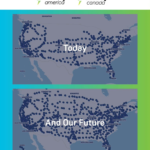Rome is the second city to welcome the Formula E electric championship series following Rio di Janeiro’s announcement in August.
The first full season of Formula E racing, the 2014 Championship, will feature 10 urban races. Rather than being held at a race track, the Formula E series will be held in city centers. Because the Formula E cars are powered on electricity, the race won’t add to the toxic fume pollution in the city, nor add to noise pollution in the city.
Formula E Holdings say that a large number of cities are interested in hosting the Formula E series races. The list of venues will soon be proposed to the FIA for the first season (2014) and there will be further announcements of other cities in the coming weeks.
For Formula E to provide cars to teams should reduce the barrier-to-entry for teams to sign up and participate. At the same time, by being an ‘open’ series the door is open to a team to develop their own race cars. For example, when Toyota Motorsports set a lap record at the Nürburgring (or Nürburg Ring) in August 2011![]() , with the EV P001, they claimed to have proved the TMG electric drive train was “ideal to power any future single-make electric motorsport series.” This is a broad hint that TMG intends to participate in a future electric race car series, and/or to supply parts to teams who wish to do so.
, with the EV P001, they claimed to have proved the TMG electric drive train was “ideal to power any future single-make electric motorsport series.” This is a broad hint that TMG intends to participate in a future electric race car series, and/or to supply parts to teams who wish to do so.
Jean Todt, FIA President, said: “It gives me great pleasure to be in Rome for this exciting announcement that the eternal city has expressed its firm interest to host a race in the Formula E 2014 championship calendar. The contrast between this innovative motorsport series and the rich ancient history of Rome is one I am sure the public and the media will be intrigued and enriched by.”
Alejandro Agag, CEO of Formula E Holdings said: “We are honored to have Rome on board as the first European city to host Formula E, since Italy is renowned for its motorsports passion, expertise and technical innovation. Clean urban mobility and sustainability are a priority for our Championship, and Formula E wants to become a showcase for these advances through an entertaining and all-inclusive spectacle. We are thankful to the Rome City Mayor and authorities for their enthusiastic welcome and support.”
Formula E holding electric Formula-car race in Rome, in 2014![]()
McLaren jump-starting Formula E series with 42 all electric race cars![]()
- Is there enough Grid Capacity for Hydrogen Fuel Cell or Battery Electric cars? - April 23, 2023
- Is Tesla finagling to grab federal NEVI dollars for Supercharger network? - November 15, 2022
- Tesla announces the North American Charging Standard charging connector - November 11, 2022
- Lightning Motorcycles adopts Silicon battery, 5 minute charge time gives 135 miles range - November 9, 2022
- Tesla Autopilot under US Dept of Transportation scrutiny - June 13, 2022
- Spectacular CNG bus fire misrepresented as EV bus fire - April 21, 2022
- Moldova, Ukraine, Georgia, Russia, and the European Energy Crisis - December 21, 2021
- Li-Bridge leading the USA across lithium battery chasm - October 29, 2021
- USA increasing domestic lithium battery research and manufacturing - October 28, 2021
- Electrify America building USA/Canada-wide EV charging network - October 27, 2021












